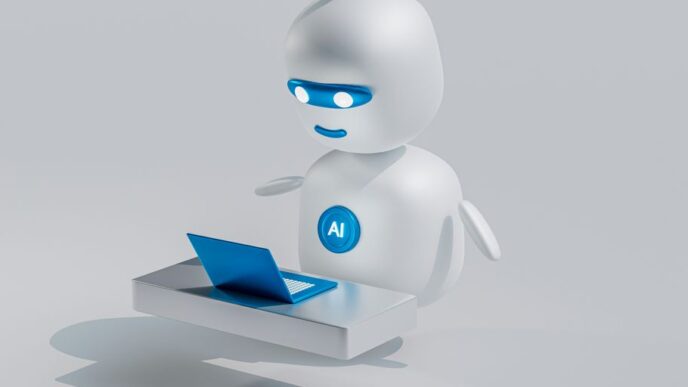As the AI revolution continues to sweep industries and reshape the way we view technology, it’s crucial to understand its limitations. While there’s no doubt that AI has made significant strides, there’s still a lot we don’t know about its capacities and drawbacks.
“Artificial Intelligence, with its transformative capabilities, has undeniably revolutionized many sectors. However, it’s crucial to acknowledge its inherent limitations. While AI excels in pattern recognition and data processing, it lacks the depth of human understanding, reasoning, and emotional nuance. It’s bound by the quality of its training data, and its computational demands raise both environmental and economic concerns. As we continue to integrate AI into our lives, it’s a poignant reminder that human intuition, emotions, and ethical judgment remain unparalleled and indispensable.” explains Iterate.ai spokesperson and Head of Applied Machine Learning and Platform, Shomron Jacob.
One of the key limitations of AI is its dependency on the volume and quality of data it is fed. In cases where data is biased or incomplete, AI systems can generate skewed or unfair outcomes, which can be particularly problematic in critical applications like hiring, law enforcement, and lending. This underscores the importance of maintaining a robust and diverse data set to train AI systems, ensuring they operate fairly and effectively across different demographics and scenarios. Additionally, AI systems are not inherently equipped to handle novel situations or gray areas that require ethical considerations, areas where human intervention remains crucial.
AI technology, particularly in its more advanced forms, requires substantial computational power, which can lead to significant environmental impacts. The energy consumption associated with training complex AI models often involves substantial carbon footprints, raising sustainability concerns as the use of these technologies becomes more widespread. This means there is a need for advancements in AI that consider not only efficiency and efficacy but also environmental impact.
Here are 5 of the current limitations of AI
#1: Generalization vs. Specialization
While AI demonstrates remarkable proficiency in narrowly-defined tasks, achieving a broad human-like general intelligence remains an ambitious aspiration. Present AI systems mandate the ingestion of vast datasets for effective training and frequently falter when tasked with extrapolating to novel, unencountered situations.
#2. Understanding and Reasoning
AI has the capability to dissect and process colossal amounts of data at astonishing velocities, but its interpretation lacks the human touch. Grasping context, discerning subtle nuances, and applying layered reasoning continue to be obstacles.
#3. Emotions and Morality
Machines don’t possess feelings or ethics. This raises pressing questions and anxieties about their participation in critical decision-making avenues that demand a blend of emotional intelligence and ethical discernment.
#4. Dependence on Data
The efficacy of AI is intrinsically tied to the caliber and volume of its feeding data. An infusion of biased, incomplete, or flawed data can inadvertently pave the way for distorted or mistaken conclusions.
#5. Computational Costs
Several cutting-edge AI models require a significant energy toll, prompting both environmental apprehensions and fiscal considerations when deciding to implement them.
How will AI leaders address these limitations?
Stakeholders in AI development, from engineers and data scientists to policymakers and ethicists, will have to choose whether or not they will collaborate to enhance the robustness and ethical considerations of AI systems. This involves not only refining AI’s abilities in understanding and reasoning in diverse scenarios but also implementing strict guidelines to ensure data integrity and ethical usage. Such multidisciplinary efforts can help bridge the gap between AI’s current capabilities and the sophisticated demands of real-world applications, ensuring that AI tools enhance human decision-making without replicating or amplifying human biases.
Understanding these limitations will be crucial as we continue to integrate AI into various aspects of our lives. Balancing the technological advancements AI offers with ethical and environmental considerations will be essential. By addressing these challenges, we can better harness AI’s potential while ensuring it serves humanity ethically and sustainably, complementing rather than replacing the unique capabilities of human intelligence.













